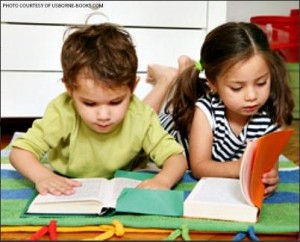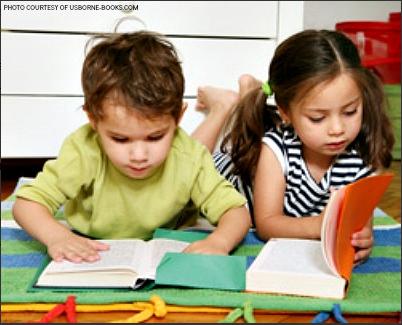
In today’s society, the push to excel is becoming more and more prevalent. Teachers start abandoning creative activities for more rigorous learning at an earlier age. Even though most would view this as a positive thing, its effects can actually be very negative.
Some would say that this recent competitive nature seen in the pedagogy, the art of teaching, of younger kids stems from the 2001 No Child Left Behind Act that pushed more instruction, as opposed to creativity, in federally funded preschools. Others might believe that it stems from increasingly ambitious parents. Parents are reading to their babies in the womb and playing classical music which supposedly makes the kids “smarter” — essentially, they are teaching a fetus.
Because of this push to teach information in preschool and elementary school, children are bombarded with a lot of factual information at a young age when they really need to be learning how to think independently and creatively. Studies from MIT and UC-Berkeley show that learning from a teacher at a young age makes them less likely to discover new information about a problem and to create a new and unexpected solution.
By learning through their own experiences, children are able to truly learn more: They can absorb more from the environment around them. This difference between learning and memorization is the issue with today’s elementary school and preschool systems. The difference is that learning deals with critical thinking and really experiencing things for yourself — which is essential to young children.
This lack of sensory learning can lead to lack of critical and creative thought later on. Even young kids become robots who merely know the cold, hard facts that teachers have instilled in them. How can children even begin to think on a higher level if they were never taught how to think for themselves?
Facts are dispensable, but creativity is priceless. And while kids of this generation are supposedly “smarter”, in the loosest sense of the term, they don’t have the much more valuable gift of creativity. They are trained to do well on the rapidly multiplying standardized tests placed in front of them — but they can’t pull deeply hidden themes out of books or think of a new shortcut method to do a math problem. Kids no longer need skills to be smart, they merely need facts.
Intelligence is defined as the ability to learn or understand things or to deal with new or difficult situations. In light of this, intelligence can not be measured by something as trivial as a standardized test. Intelligence is being able to think your own way and being able to be a skilled problem solver — two skills that most kids today lack.
A fairly well-known graduation speech by Erica Goldson, valedictorian of her high school, depicts the possible effect of this early discouraging of creativity. The essential point of her speech is that schools need to reform the education and that students should have the opportunity to truly learn so that they have the tools needed to succeed in the real world.
Goldson makes the point that all she ever did was memorize sometimes useless information so that she could be prepared to ace a test, only to forget it as soon as the test was over. She argued that her, among all children of this generation, are slaves to school.
Today’s generation is pushed to excel and they end up forsaking the privilege to learn. We don’t learn of talents that we may have been blessed with and we don’t really get as much as we can out of an education.
Our education system is deteriorating the true meaning of learning. We are forsaking the ability of true intelligence for the illusion of so-called “knowledge”. The irrationality and early push on kids in our school system needs to stop.

Leave a Reply